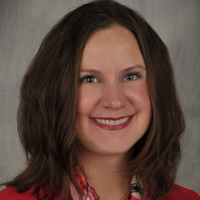
Many financial advisors truly care about their clients’ wellbeing. These advisors do much more than manage a client’s investments — they help clients answer questions about retirement, health care, LTC and inheritances. They stay in touch with their clients, some of whom they have known for decades. If you are one of these advisors, you’ll care enough to read this article until the end.
As a virtual aging plan consultant and patient advocate, I have never been so dismayed by what I see happening to seniors and other vulnerable adults who need care. I see it happening in many of their homes. It’s happening in nursing homes too.
Before I get into what’s happening, I’ll explain why it’s happening.
Worker and Leadership Shortages
As I am sure many of you have read, the pandemic and subsequent fallout has caused a healthcare worker crisis. Senior care homes, home health care companies, companion care companies, and hospitals across the nation are experiencing staffing shortages.
Healthcare workers are working double shifts more often than not. Companion companies do not have enough companions or caregivers to serve the volume of seniors trying to stay at home. There has been a massive turnover in key leadership positions. Many seasoned healthcare workers and senior care executive directors retired early to leave their career on a high note. At many senior care homes, the departure of leaders has meant no one is holding direct care workers accountable for providing quality and compassionate care. With worker and leadership shortages, the quality of care and compassionate care plumets.
The Result
Common issues we see and address with the leadership team are meals not being delivered. Residents are staying in bed all day. Residents are being triple “Depended” and not taken to the toilet or changed as often as they should be. Treatments are being missed. Facilities are using agency staffing who do not know the residents care plans or their needs. Seniors are being hospitalized because their needs are not being met. “Trained” workers say our dementia clients “don’t know anything” or allow them to walk without their walkers and fall, leading to ER trips, hospitalizations, and then a move into skilled rehab centers for therapy from broken hips. Many hospitalizations and pre-mature deaths could have been prevented if proper staffing levels were in place and proper oversight of care workers occurred.
According to the World Health Organization (WHO) 2020 study, over 64% of nursing home staff admitted to committing some form of abuse or neglect. Nearly 12% of residents or their families reported cases of nursing home neglect in this same study. The National Council on Aging (NCOA) and National Center on Elder abuse (NCEA) both report that nearly 50% of elders with dementia experience abuse or neglect.
An Aging 2.0 study revealed 47% of hospital discharge patients are unable to follow through with their discharge instructions, usually requiring multiple follow up doctor appointments. Why do these patients struggle to follow through with these instructions? Because they are still ill and weak. Some have memory impairments. Some live alone with no family/support system nearby. Adult children assume their aging parents are more capable than they actually are. Some seniors who need help themselves are caregivers to other loved ones and feel the need to resume caregiving, even though their own health is still shaky. Many of these patients end up as a self-neglect case and/or back in the hospital.
Why Should This Matter to Financial Advisors?
According to CUNA study, 58% of adult children find themselves thrust into the role of family caregiving without ever having any family meeting to discuss the “what ifs” of aging or a medical crisis plan.
Let’s break this down why this should matter to you. First, your aging clients need to be properly taken care of and know that the professionals they pay are concerned about their wellbeing. How often did you check in with them during the pandemic when they were in isolation, whether in a facility or at home? Did you send them puzzle books or other care packages to break up their day and help distract them from watching the terrible events on TV that occurred during the pandemic? If your aging client had to move into a facility during the pandemic, did you call them and the family to offer support, knowing family members could not visit and literally just had to drop their scared loved one off at the door not knowing if they would ever see them again? Have you reached out to your senior clients to inquire how attentive the staff are to their needs? These are basic relationship 101 skills with the benefit of marketing yourself as a caring advisor.
Second, you can help ensure their safety and quality care. One suggestion is using a collaborative approach with other professionals in your network. Do you have geriatric care managers and patient advocates in your network to refer your clients to? Are you visiting them in their home or in the care facility often to identify care issues or issues of self-neglect? Many seniors at home are not eating nutritious meals, not properly taking their medication, may not be able to drive, may be too weak or demented to properly care for themselves or may be missing their doctor appointments. They are at risk of financial scams, as well as of falling, dehydration and unmanaged progressive diseases like dementia.
If your client is one of the hospital discharged patients, you should reach out to see how they are doing and if they need help with any follow up calls and appointments. You could also refer your client to a care manager who can help them do these things.
Ask yourself how often you are you in touch with your clients, whether they are the adult son or daughter who will likely be thrust into the role of caregiving. Do you know your clients’ family? Having relationships with the family helps you keep the AUM when your senior client passes away. But it also will give you a sense of what is happening in their lives and makes you a more caring and relationship-based comprehensive planner. You can offer to have other professionals step in and help your client have the best possible outcome.
An Appalling Story
I had a family who retained me to develop an aging plan. The son did not live near his father, which is often the case. I aligned his father’s care team, and checked in on him twice a week. I helped his father complete his “Grab and Go” binder, a document-organizing tool I created to help families have important papers in one place, such as insurance policies and a list of professionals they retain for services (like CPA, attorney, financial advisor, insurance reps, etc).
The son’s father passed away. The son retrieved the financial advisor’s contact information from the Grab and Go. The son called his father’s financial advisor to let him know about his loss. The son reported to me that he had to console the advisor for 20 minutes because the advisor expressed fear that the son was going to move his father’s $12 million account. You guessed it, after the funeral, the son moved the account to his own financial advisor.
Additional Reading: Do Your Clients Have an Aging Plan?
What Needs to Be Done
How are you addressing the needs of your clients who are primary family caregivers, many who end up leaving the workforce? They end up not contributing to their own retirement accounts, and find themselves in poor health due to the overwhelming nature of caregiving. Caregiving to aging loved ones CAN be a pleasant and positive experience IF an aging plan and enough supports are in place.
Our seniors and their adult children need us to advocate for them. We need to let them know we are here for them, that there are resources and other professionals who can help them have a better quality of life and understand what their care options may be. How amazing would you feel if you to make such a difference?
Annalee Kruger is president of Care Right Inc. (a nationwide senior care planning/aging plan consultant and virtual patient advocate) and co-president of Plan4LifeNow (an education and financial planning consultancy teaching financial advisors to become Elder Planning Specialists). As a virtual and nation-wide senior care planner and senior advocate, Annalee teaches advisors and families how to boldly advocate for their clients and loved ones. Her book, “The Invisible Patient: The Emotional, Financial, and Physical Toll on Family Caregivers,” is available on Amazon and Audible.







